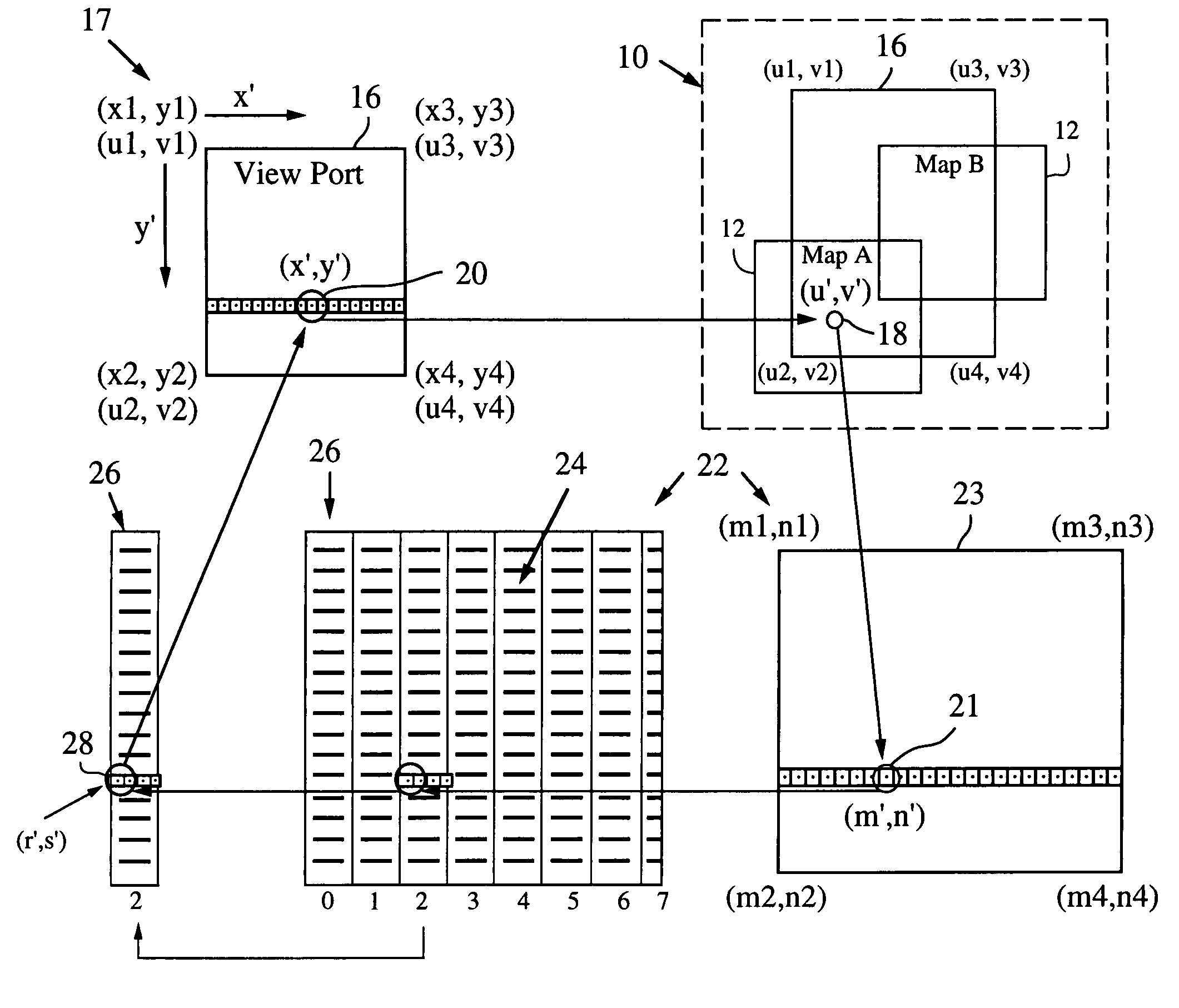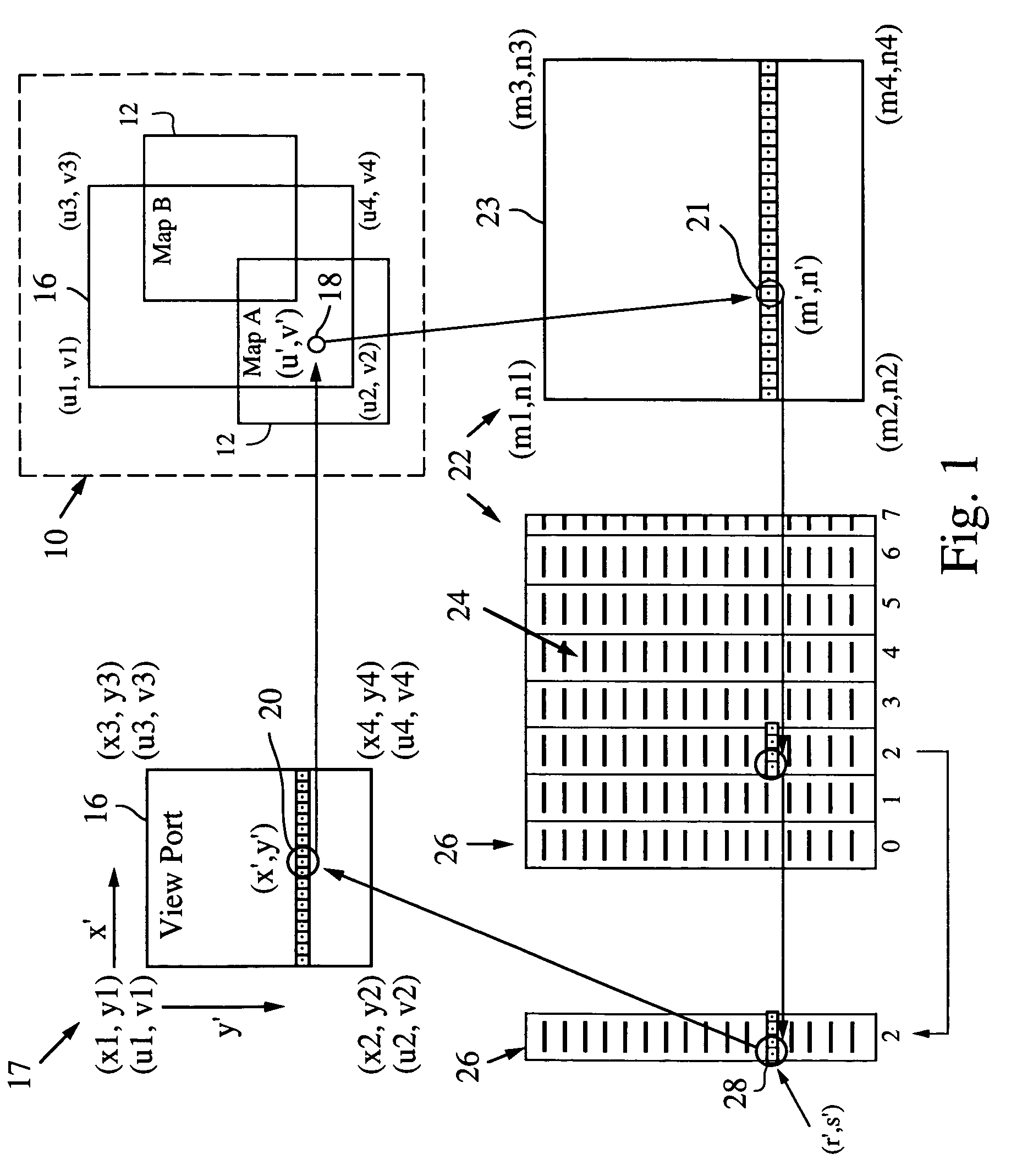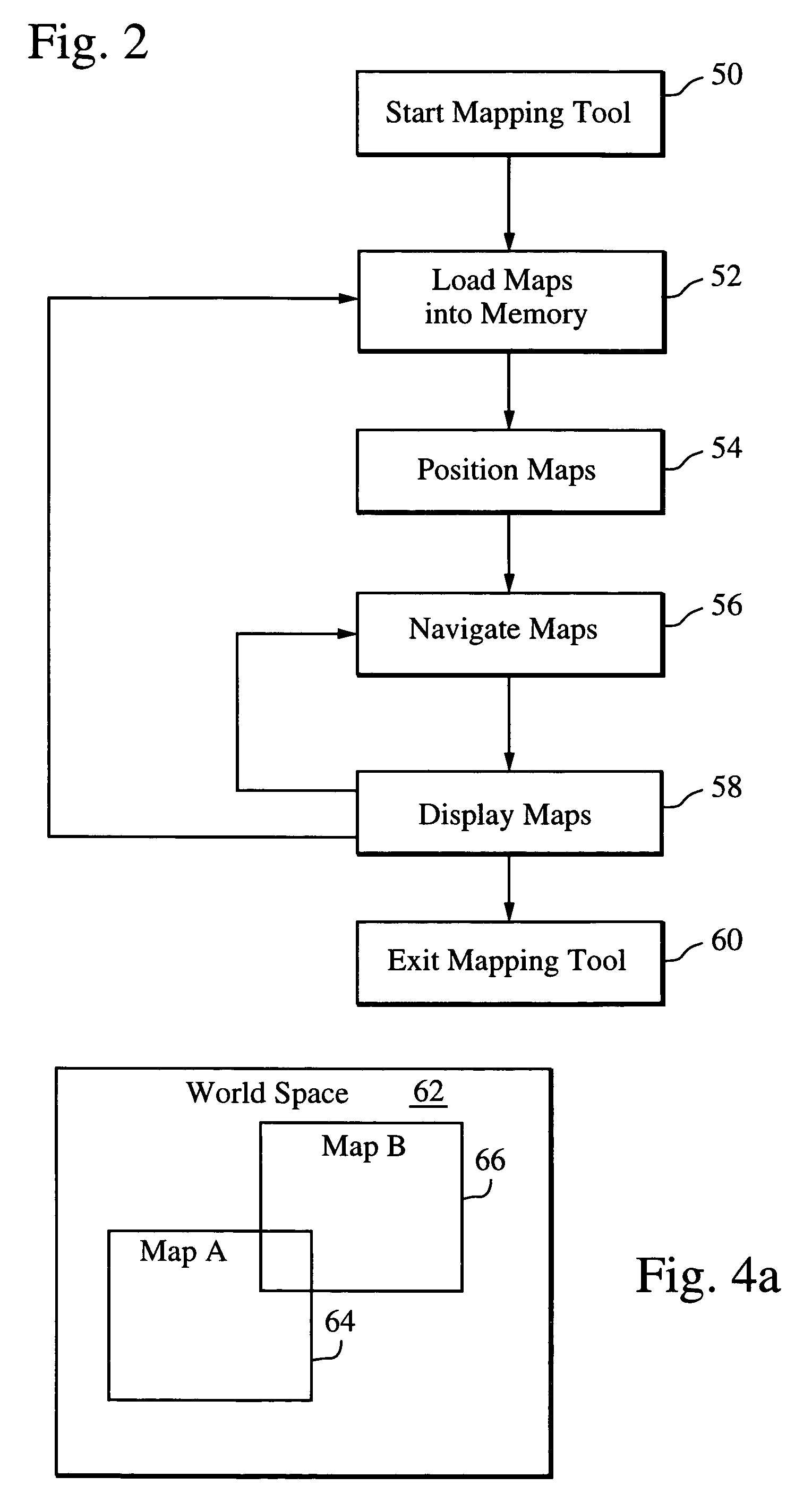Mapping application for rendering pixel imagery
a mapping application and imagery technology, applied in the field of mapping applications, can solve the problems of limited processing power, memory and display size, limited frame-rate, and drawing tricks used to temporarily disorient users
- Summary
- Abstract
- Description
- Claims
- Application Information
AI Technical Summary
Benefits of technology
Problems solved by technology
Method used
Image
Examples
Embodiment Construction
[0026]The present invention relies on a modified affine transformation algorithm to provide near real-time navigation of imagery, track-up capability and integration of segment and picture data. The mapping application is most useful for rendering pixel imagery on a platform with limited processing power, limited memory and small display sizes, e.g., “hand held devices” such as a GPS handset, a personal digital assistant (PDA) or cell phone. However, the techniques could be applied to other platforms such as car navigation systems, laptop computers or PCs.
[0027]Affine transformations are algorithms most often used in 3D graphics for texturing polygons (triangles are most commonly used) with bitmaps. They are also used in applications that allow the rotation of 2D images, such as Power Point®. Although the affine transformation algorithm is known, its use in and modification for a map rendering application is new. The standard affine algorithm, although adequate for displaying a sing...
PUM
 Login to View More
Login to View More Abstract
Description
Claims
Application Information
 Login to View More
Login to View More - R&D
- Intellectual Property
- Life Sciences
- Materials
- Tech Scout
- Unparalleled Data Quality
- Higher Quality Content
- 60% Fewer Hallucinations
Browse by: Latest US Patents, China's latest patents, Technical Efficacy Thesaurus, Application Domain, Technology Topic, Popular Technical Reports.
© 2025 PatSnap. All rights reserved.Legal|Privacy policy|Modern Slavery Act Transparency Statement|Sitemap|About US| Contact US: help@patsnap.com



